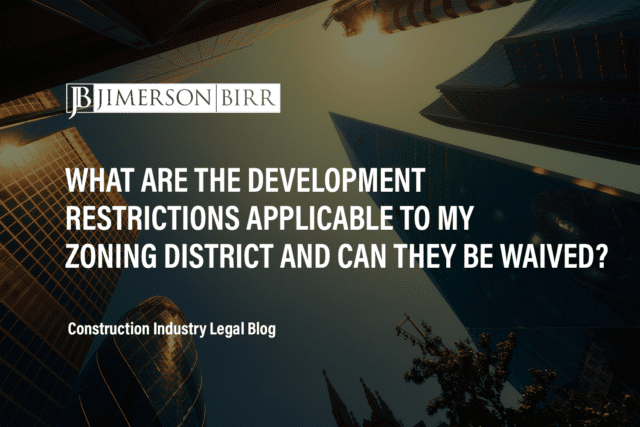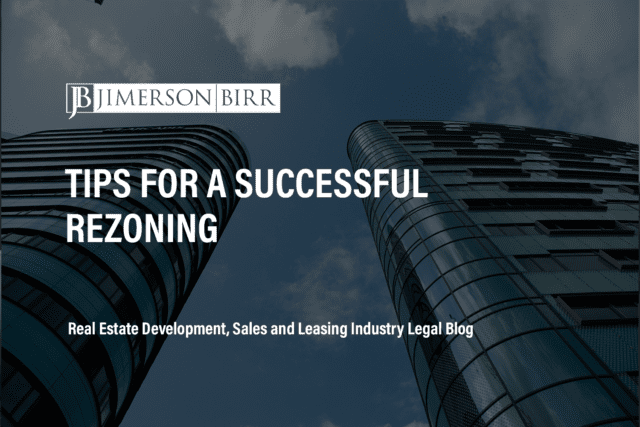What are the legal limits on zoning regulation?
In the United States, there are legal limits on zoning regulations. Spot zoning is a particularly controversial regulation that designates a specific property or small area for a use different from the surrounding land use. For example, a residential area may be rezoned to allow for commercial development, even though it is not consistent with the overall character of the neighborhood.
One of the legal limits on spot zoning is the requirement to serve a legitimate public purpose. If the spot zoning is deemed arbitrary or not in the public interest, it may be struck down as a violation of due process.
Another limit is that spot zoning must be rationally related to a legitimate government interest. This means that the zoning regulation must be based on a reasonable belief that it will serve a valid government purpose, such as promoting public health, safety, or welfare.
Furthermore, local governments must follow specific procedural requirements when enacting zoning regulations, including spot zoning. These requirements may include providing notice and holding public hearings to allow for community input and feedback. Failure to follow these procedures may also result in a legal challenge to the zoning regulation.
In summary, while zoning regulations, including spot zoning, are essential for local governments to regulate land use, they must be consistent with legal limits and requirements, including serving a legitimate public purpose, being rationally related to a government interest, and following proper procedural requirements.
Need help with a matter related to legal limits on controversial zoning regulation? Schedule your consultation today with a top land use and zoning attorney.
In Florida, which laws and regulations relate to legal limits on controversial zoning regulation?
In Florida, legal limits on controversial zoning regulations are governed by several state and local laws and regulations. Some essential rules and regulations include:
- Florida Statutes §§ 163.2511 – 163.3253: This statute sets forth the requirements for local comprehensive planning in Florida, including the adoption, amendment, and evaluation of comprehensive plans.
- Local Zoning and Land Use Regulations: In addition to state laws and regulations, each municipality and county in Florida has its own set of zoning and land use regulations that govern development within their jurisdiction. These regulations typically include zoning maps, district descriptions, permitted uses, density requirements, setbacks, and other provisions that guide development in the area.
- Local Comprehensive and Master Plans: Many municipalities and counties in Florida have comprehensive plans and master plans that guide development within their jurisdiction. These plans typically include goals, policies, and recommendations for land use, transportation, housing, environmental protection, and other issues.
The federal government also sets legal limits on controversial zoning regulations through various laws, regulations, and court decisions.
- The Fifth Amendment to the U.S. Constitution: The Fifth Amendment requires that property owners be compensated when their property is taken for public use. Zoning regulations that take private property without just compensation may be challenged under the Fifth Amendment.
- The National Historic Preservation Act: This federal law protects historic buildings and sites. Zoning regulations not complying with the National Historic Preservation Act may be invalidated.
- The Clean Water Act: This federal law regulates water pollution and wetlands protection, which can impact land use and development. Zoning regulations not complying with the Clean Water Act may be invalidated.
What are common issues regarding controversial zoning regulations that lead to litigation?
The following issues are among the most common in actions regarding zoning regulation in land use and zoning matters:
- Discrimination: Zoning regulations that discriminate against protected classes, such as race, gender, or religion, are illegal and can be challenged in court. For example, a zoning regulation that prohibits multi-family housing construction in a predominantly minority neighborhood could be challenged as discriminatory.
- Spot Zoning: Spot zoning, which involves rezoning a small area of land for a use inconsistent with the surrounding area, is often challenged in court. If the spot zoning is arbitrary or discriminatory, it may be invalidated.
- Exclusionary Zoning: Exclusionary zoning excludes certain housing types, such as affordable housing or multifamily housing, from a community. Exclusionary zoning can be challenged in court as a violation of the Fair Housing Act.
- Due Process: Property owners must be given notice and an opportunity to be heard before zoning regulations are enacted or modified. If property owners are not given proper notice or a chance to be heard, they may challenge the zoning regulations as a violation of due process.
- Vagueness and Overbreadth: Zoning regulations that are too vague or overbroad may be challenged in court as unconstitutional. For example, a zoning regulation that prohibits “noxious uses” without clearly defining what constitutes a “noxious use” may be challenged as too vague.
- Takings: Zoning regulations that result in a taking of private property without just compensation may be challenged under the Fifth Amendment. Property owners may be compensated if their property is taken for public use.
When a set of facts potentially implicates the legal limits on controversial zoning regulation, there are many paths a claimant may take. We are value-based attorneys at Jimerson Birr, which means we look at each action with our clients from the point of view of costs and benefits while reducing liability. Then, based on our client’s objectives, we chart a path forward to seek appropriate remedies.
To determine whether your unique situation may necessitate litigation, please contact our office to set up your initial consultation.
What are effective measures to minimize the risk of litigation over legal limits on controversial zoning regulation?
Here are some practical measures to minimize the risk of litigation over legal limits on controversial zoning regulations:
- Adopt a Comprehensive and Well-Planned Zoning Code: A clear, comprehensive, and well-planned zoning code can help minimize the risk of legal challenges. A well-planned zoning code should reflect the community’s goals and values, be consistent with state and federal laws, and provide clear and consistent land-use standards.
- Conduct Regular Reviews and Updates: Regular reviews and updates of the zoning code can help ensure that it remains up-to-date and responsive to changing community needs and goals. This can help prevent legal challenges based on outdated or inconsistent regulations.
- Involve Stakeholders in the Zoning Process: Involving stakeholders, including property owners, residents, and community groups, in the zoning process can help build consensus and support for zoning decisions. It can also help identify potential legal issues early on and address them proactively.
- Provide Clear and Transparent Procedures: Clear and transparent procedures for zoning decisions, such as public hearings and notice requirements, can help ensure property owners have a fair and meaningful opportunity to participate in the zoning process. This can help minimize legal challenges based on due process violations.
- Consider the Impact on Property Owners: When enacting or modifying zoning regulations, it is crucial to consider the potential impact on property owners. This can help prevent legal challenges based on takings or other property rights violations.
What evidence does a plaintiff generally need to file a lawsuit regarding zoning regulation successfully, and what are common legal defenses to those claims?
Assuming first that all administrative remedies (i.e., commission hearings and administrative appeals) are exhausted, to file a lawsuit regarding zoning regulation successfully, a plaintiff generally needs to provide evidence that the regulation violates a constitutional right, such as due process or equal protection, or violates a federal or state law. The specific evidence required will depend on the legal claim being asserted, but some common types of evidence include:
- Evidence of Discrimination: If the plaintiff alleges that the zoning regulation is discriminatory, they must provide evidence that the regulation has a disparate impact on a protected group or was motivated by discriminatory intent.
- Evidence of Takings: If the zoning regulation constitutes a taking of private property without just compensation, the impacted party will need to provide evidence of the economic impact of the regulation on their property.
- Evidence of Vagueness or Overbreadth: If a party challenges the zoning regulation as unconstitutionally vague or overbroad, they must provide evidence that it fails to provide clear guidance or is overly restrictive.
Common legal defenses to these claims may include:
- Rational Basis: Zoning regulations are generally subject to a deferential standard of review known as rational basis, which requires only that the regulation is rationally related to a legitimate government interest. If the zoning regulation meets this standard, the courts will generally uphold it.
- Lack of Standing: Plaintiffs must have standing, or a legally recognized interest in the case’s outcome, to bring a lawsuit. Defendants may challenge the plaintiff’s standing to bring the lawsuit, which can result in the case being dismissed.
- State Immunity: States are immune from certain types of lawsuits under the Eleventh Amendment to the U.S. Constitution. This immunity can be asserted as a defense to claims against state agencies or officials.
- Due Process: If the plaintiff alleges that the zoning regulation violates substantive due process, the defendant may argue that the regulation is necessary to protect public health, safety, or welfare. On the other hand, if the plaintiff alleges that the zoning regulation violates procedural due process, the defendant may argue that the plaintiff was provided with notice and an opportunity to be heard before the regulation’s adoption.
To see what actions or defenses may be available for your unique situation, please contact our office to set up your initial consultation.
Have more questions about the legal limits on controversial zoning regulation?
Crucially, this overview of the legal limits on controversial zoning regulation does not begin to cover all the laws implicated by this issue or the factors that may compel the application of such laws. Every case is unique, and the laws can produce different outcomes depending on the individual circumstances.
Jimerson Birr attorneys guide our clients to help make informed decisions while ensuring their rights are respected and protected. Our lawyers are highly trained and experienced in the nuances of the law, so they can accurately interpret statutes and case law and holistically prepare individuals or companies for their legal endeavors. Through this intense personal investment and advocacy, our lawyers will help resolve the issue’s complicated legal problems efficiently and effectively.
Having a Jimerson Birr attorney on your side means securing a team of seasoned, multi-dimensional, cross-functional legal professionals. Whether it is a transaction, an operational issue, a regulatory challenge, or a contested legal predicament that may require court intervention, we remain a tireless advocate every step of the way. Being a value-added law firm means putting the client at the forefront of everything we do. We use our experience to help our clients navigate even the most complex problems and come out the other side triumphant.
If you want to understand your case, the merits of your claim or defense, potential monetary awards, or the amount of exposure you face, you should speak with a qualified Jimerson Birr lawyer. Our experienced team of attorneys is here to help. Call Jimerson Birr at (904) 389-0050 or use the contact form to set up a consultation.
Here are some blogs written by JB attorneys that provide more information about legal limits on controversial zoning regulation:
- What Are the Development Restrictions Applicable to My Zoning District and Can They Be Waived? | Jimerson Birr (jimersonfirm.com)
- How Do You Use A Writ Of Certiorari To Challenge Quasi-Judicial Decisions Of A Local Government? (jimersonfirm.com)
- Tips for a Successful Rezoning | Jimerson Birr (jimersonfirm.com)

We live by our 7 Superior Service Commitments
- Conferring Client-Defined Value
- Efficient and Cost-Effective
- Accessibility
- Delivering an Experience While Delivering Results
- Meaningful and Enduring Partnership
- Exceptional Communication Based Upon Listening
- Accountability to Goals











